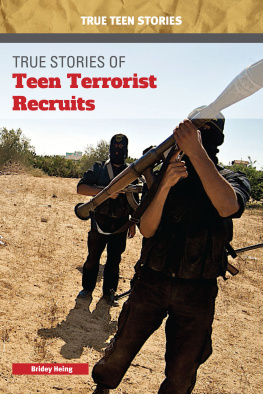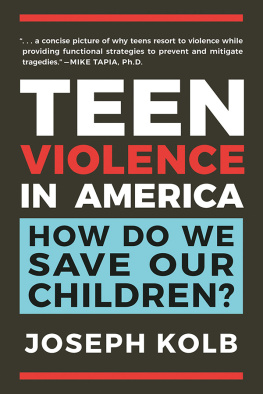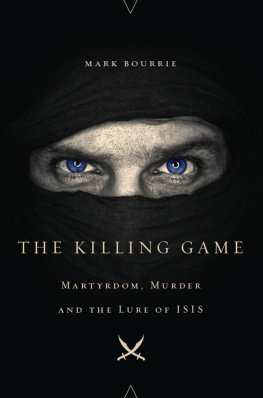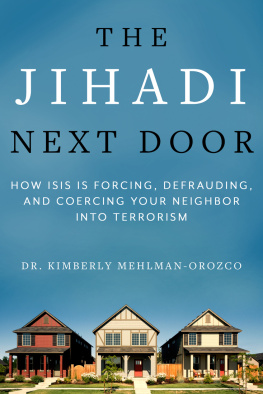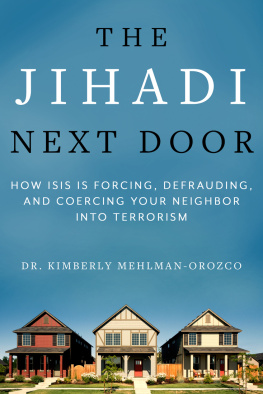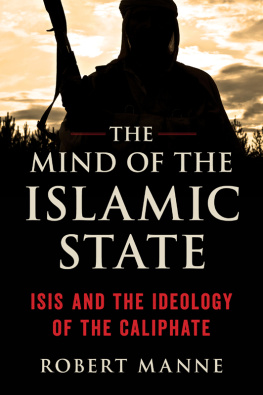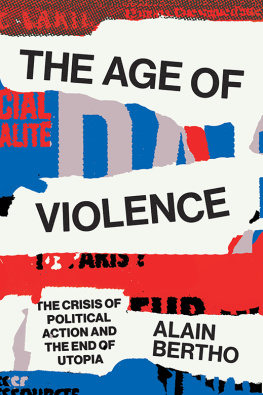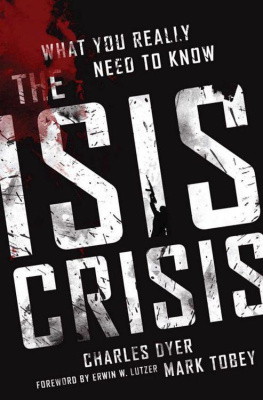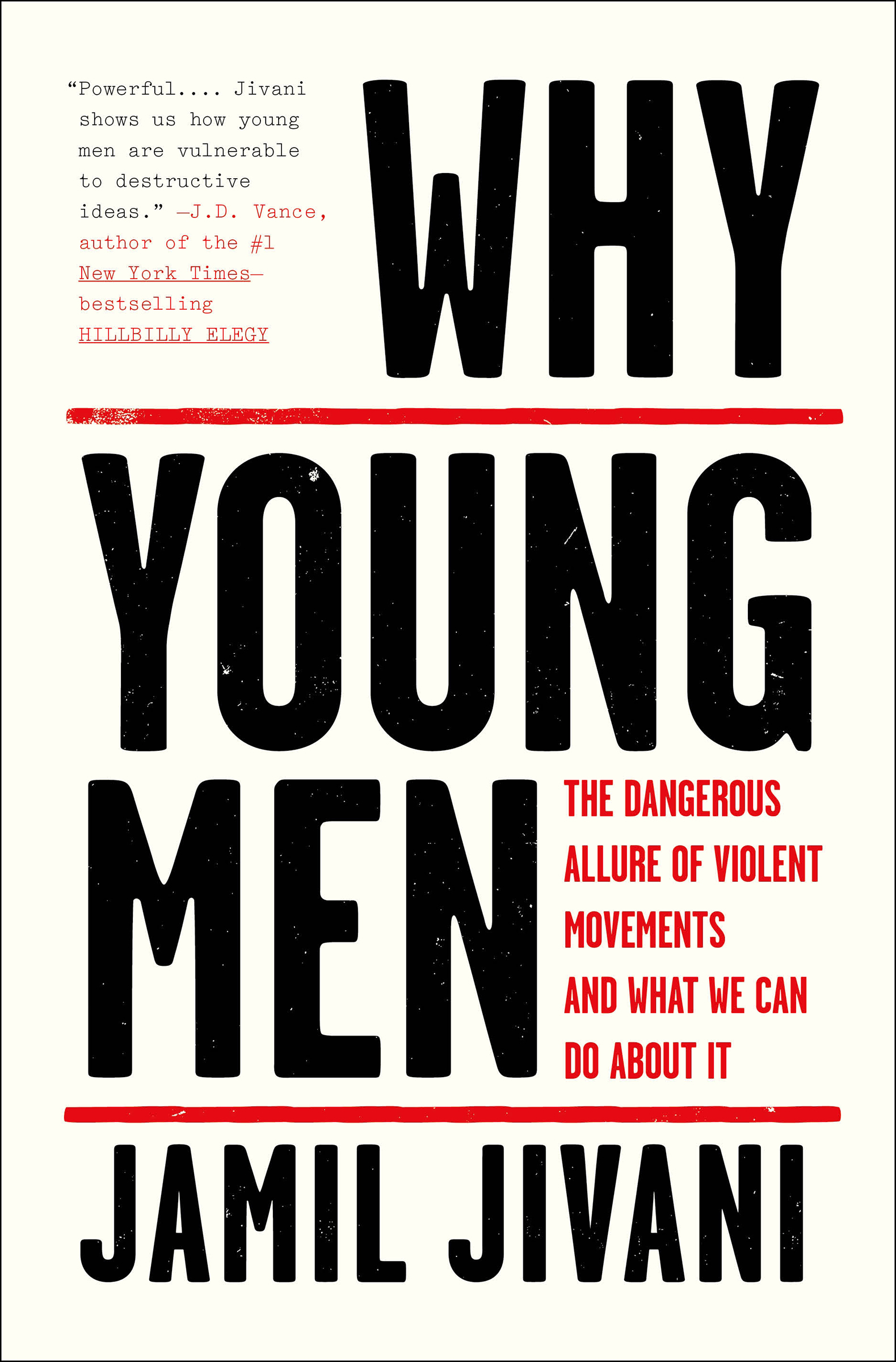The author and publisher have provided this e-book to you for your personal use only. You may not make this e-book publicly available in any way. Copyright infringement is against the law. If you believe the copy of this e-book you are reading infringes on the authors copyright, please notify the publisher at: us.macmillanusa.com/piracy.
During my first days at Yale Law School, I distinctly remember meeting two people. The first was the girl who would eventually become my wife. The second was Jamil Jivani, the author of the book you now hold in your hands.
Jamil and I didnt obviously share much in common. He was a black guy from Canada; I was a white guy from America. He grew up in a big city, and I grew up in a small town. He didnt understand why I liked guns, and I didnt understand why about sounded like aboot when he pronounced it.
But appearances can be deceiving, and Jamil and I quickly realized our similarities. We were both patriotic, and loved and admired our home countries, despite their imperfections. We both owed much of our lives opportunities to womenmy grandmother, his motherwho stepped up when others let us down. We both felt a strong connection to our communities back home even as we lacked a certain comfort with the elite environment of Yale. Neither of us came from families with money. And we both knew very personally the feeling of loss and shame that comes from growing up without your father around.
Early during that first year of law school, Jamil and I found ourselves in a large group eating at a late-night chicken joint. As everyone filed out, Jamil and I both noticed the terrible mess wed left and stayed behind to clean everything up. We are probably the only people here whove ever had to clean up someone elses mess, I said. Jamil just nodded in agreement.
Jamil would eventually become one of my best friends. Years later, at my wedding, I chose Jamil to read my favorite verse from the Bible, from Saint Pauls letter to the Philippians: Finally, brethren, whatsoever things are true, whatsoever things are honest, whatsoever things are just, whatsoever things are pure, whatsoever things are lovely, whatsoever things are of good report; if there be any virtue, and if there be any praise, think on these things.
I am proud of Jamil. Proud mostly of the man he has become and strives to become each day. Proud of his dedication to his beliefs. Proud of this book he has written, published for the first time in my home country. In it, Jamil asks the question, as the title indicates, Why young men? Why do young men seem to be struggling so much in our modern society? Why are young male immigrants less able to assimilate into their new homes in the West? Why are so many young men in the inner city caught up in gang activity? Why is it that so much of the violence, social dysfunction and misery in our societies disproportionately exists and flows from our young men?
His answer is that todays world throws more traps and temptations in front of young men than ever before with even fewer ladders out of the ditches they end up in. From their families, their neighborhoods, their communities and even their countries, young men find themselves a little more disconnected and isolated than ever before. Moreover, there are fewer sources of legitimate and productive meaning available. Thus, theres a temptation to take the easy or fun way out of situations. Tragically, of course, the easiest way out of a given crisis is often the most destructive.
Jamils way of answering that question is insightful and engaging. Its impossible to do justice to a bookor indeed, a mans lifein a brief foreword. But Jamil brings perhaps the three most important qualities to this task: a brilliant intellect, a life of experiences and insights and real moral courage. Jamil does not avoid tough questions, or make the most ideologically or politically convenient arguments. He takes the world as it is. He allows experience and data to inform and guide him. And he tackles this extraordinarily difficult topic with grace and compassion. I am biased, of course, but I believe that this is an important book.
One of the things I admire most about my friend is that he has not lost his passion for working on the things he cares about. A few years after we graduated from law school, as I thought about creating a nonprofit organization focused on the opioid epidemic that is ravaging my home state of Ohio, I called Jamil. He had created nonprofits of his own before, and I wanted his advice on how to proceed. He offered to take a sabbatical from his teaching position in Toronto and help me get the organization off the ground.
The organization we created together was low budget and leanly budgeted. We focused initially on a couple of public policy issues, especially on increasing access to kinship guardians. In Ohio, there are so many parents incapacitated (or worse) because of their addiction, that theres an entire generation of children growing up without stable homes. And, terribly, the grandparents, aunts, uncles and other relatives who want to take care of those children cant because of various legal and financial barriers. Our organization pushed some legislation to remedy that problem. (Its still a work in progress, but we have at least acquired a number of cosponsors.)
Weve also successfully brought a nationally renowned addiction expert to southeastern Ohio, where the epidemic is the worst, and funded some of her work in treating patients and researching the epidemic. At every step of the way, Jamil has thought through how to solve problems, attract resources and implement our plans. This is not a person who merely writes or thinks about our societys most troubling problems. He actually does something about them.
About a year ago, I began noticing that Jamil was often feeling ill. It was fall, and he was in a new environment, so I just assumed he was having a run of bad luck with cold and flu season. But one day he called me and told me that he had returned home to Toronto for treatment, and that his doctors thought he likely had advanced lymphoma.
There is simply nothing that can prepare you for the news that your frienda young and healthy friend, at thathas been diagnosed with cancer. Jamil and I spoke about his treatment plan, and his progress, as weeks with cancer turned into months. I knew he was optimistic that he could beat the disease, and I knew that he drew a lot of strength from his community in Toronto, especially his church. Throughout his treatment, Jamil never gave in to pessimism or defeatism. There were certainly hard days, and both the disease and the treatments took a physical toll, but Jamil persevered. And he always checked in on our organization, doing what he had to even at the lowest points of the disease.
As I write this, Jamil has finished his cancer treatment and is hopeful that in the weeks to come hell receive a clean bill of health. His health has given the book a new poignancy, and its tough for me to separate this book from the disease that came into his life just as the book approached publication. But the book, like Jamil, is bigger than any health problem.
After I proposed to my wife, my favorite professor, Amy Chua, threw us an engagement party. She asked Jamil and a few others to give toasts. Jamil and I were very close, so his toast naturally focused on me. We are, he told me (and about a hundred others), a generation of fatherless men. For so much of our lives, weve had to figure out how to be men on our own.


